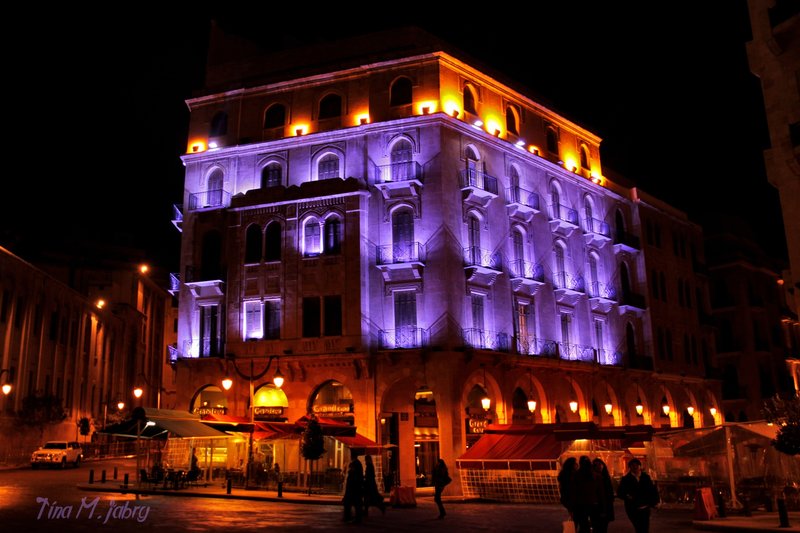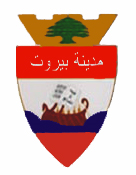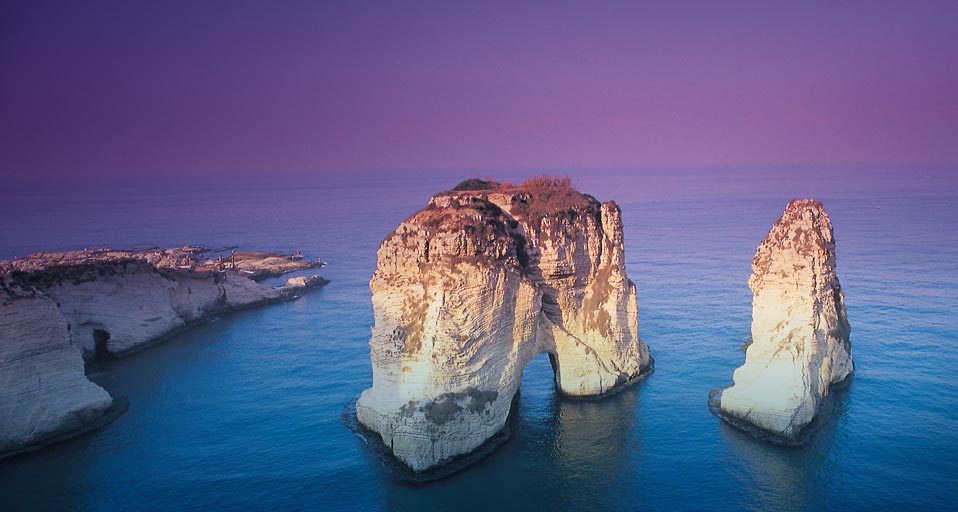Difference between revisions of "Beirut"
(→Economy) |
(→Economy) |
||
| Line 48: | Line 48: | ||
To further enhance Beirut's attractiveness to foreign investment, the Lebanese Banking System possesses several characteristics that promote the role of Beirut as a regional financial center, in terms of ensuring protection for foreign capital and earnings. The Lebanese currency is fully convertible and can be exchanged freely with any other currency. Moreover, no restrictions are put on the free flow of capital and earnings into and out of the Lebanese economy. In September of 1956, Lebanon enacted a series of comprehensive banking secrecy laws that in short subjected all banks established in Lebanon as well as foreign banks' branches to a strict code of secrecy regarding foreign creditors and their assets. Additionally, later expansions on these banking laws ensured exemptions from income tax on all interest and revenues earned on all types of accounts opened in Lebanese banks. Furthermore, these same laws established a free banking zone by granting the Lebanese government the right to exempt non-residents' deposits and liabilities in foreign currency from income tax on interest earned. | To further enhance Beirut's attractiveness to foreign investment, the Lebanese Banking System possesses several characteristics that promote the role of Beirut as a regional financial center, in terms of ensuring protection for foreign capital and earnings. The Lebanese currency is fully convertible and can be exchanged freely with any other currency. Moreover, no restrictions are put on the free flow of capital and earnings into and out of the Lebanese economy. In September of 1956, Lebanon enacted a series of comprehensive banking secrecy laws that in short subjected all banks established in Lebanon as well as foreign banks' branches to a strict code of secrecy regarding foreign creditors and their assets. Additionally, later expansions on these banking laws ensured exemptions from income tax on all interest and revenues earned on all types of accounts opened in Lebanese banks. Furthermore, these same laws established a free banking zone by granting the Lebanese government the right to exempt non-residents' deposits and liabilities in foreign currency from income tax on interest earned. | ||
| − | Finally, since Lebanon remains a strict adherent to the '''Gold Standard''', the Central Bank of Lebanon holds enough gold on hand to guarantee 80% of all of Lebanese currency in the market. Basically, this means that the Central Bank can easily cope with any unforeseen crisis in the future. And foreign investors find this a very attractive facet of the Lebanese economy and as such, foreign investment continues to grow by about 6% in lean years and can rise to roughly 8% in better seasons. | + | Finally, since Lebanon remains a strict adherent to the '''''Gold Standard''''', the Central Bank of Lebanon holds enough gold on hand to guarantee 80% of all of Lebanese currency in the market. Basically, this means that the Central Bank can easily cope with any unforeseen crisis in the future. And foreign investors find this a very attractive facet of the Lebanese economy and as such, foreign investment continues to grow by about 6% in lean years and can rise to roughly 8% in better seasons. |
=== Tourism === | === Tourism === | ||
Revision as of 00:52, 5 April 2014
Contents
- 1 Quote
- 2 Appearance
- 3 City Device
- 4 City Motto
- 5 Climate
- 6 Demonym
- 7 Economy
- 8 Geography
- 9 History
- 10 Population
- 11 Arenas
- 12 Attractions
- 13 Bars and Clubs
- 14 Cemeteries
- 15 City Government
- 16 Crime
- 17 Citizens of the City
- 18 Current Events
- 19 Fortifications
- 20 Galleries
- 21 Holy Ground
- 22 Hospitals
- 23 Hotels & Hostels
- 24 Landmarks
- 25 Maps
- 26 Mass Media
- 27 Monuments
- 28 Museums
- 29 Parks
- 30 Private Residences
- 31 The 12 Quarters of Beirut
- 32 Restaurants
- 33 Ruins
- 34 Schools
- 35 Shopping
- 36 Telecommunications
- 37 Theaters
- 38 Transportation
- 39 Vampires of the City
- 40 Websites
- 41 Errata
Quote
This is Beirut...
Home of the Alphabet
Home of all religions
Home of a 15 years of civil war (1975-1990)
Home of the Israeli invasion (1982)
Home of a 15 years under syrian occupation (1990-2005)
Home of Islamic Radicalism
Home of Hezbollah and the so called terrorism
Home of Christian fanaticism
Home of militias and armed civilians
Home of corrupted politicians and unfaithful cardinals
Home of Anarchy and organized chaos
This is Beirut... It's a home for those who don't have any!
-- Author Unknown
Appearance
City Device
City Motto
Berytus Nutrix Legum (Latin: Beirut, mother of laws)
Climate
Beirut has a hot-summer Mediterranean climate characterized by warm days and nights, yet summers can be virtually rainless. Autumn and spring are cool, with rainy winters. August is considered the only really hot month, with a monthly average high temperature of 32 °C (90 °F), and January and February are the coldest months, with a monthly average low temperature of 11 °C (52 °F). The prevailing wind during the afternoon and evening is from the west (onshore, blowing in from the Mediterranean); at night it reverses to offshore, blowing from the land out to sea.
The average annual rainfall is 893 millimetres (35.2 in), with the majority falling in winter, autumn and spring. Much of the autumn and spring rain falls in heavy downpours on a limited number of days, but in winter it is spread more evenly over a large number of days. Summer receives very little rainfall, if any. Snow is rare, except in the mountainous eastern suburbs, where snowfall is common due to the region's high altitudes. Large snowstorms, however, have occurred as recently as: 1920, 1942 and 1950.
Demonym
Beiruti
Economy
Beirut's economy is service-oriented with the main growth sectors being banking and tourism.
In an area dominated by authoritarian or militarist regimes, the Lebanese capital was generally regarded as a haven of liberalism, though a precarious one. With its seaport and airport—coupled with Lebanon’s free economic and foreign exchange system, solid gold-backed currency, banking-secrecy law, and favourable interest rates—Beirut became an established banking centre for Arab wealth, much of which was invested in construction, commercial enterprise, and industry (mostly the manufacture of textiles and shoes, food processing, and printing). The economy of Beirut is diverse, including publishing, banking, trade and various industries. During that period, Beirut was the region's financial services center. At the onset of the oil boom starting in the 1960s, Lebanon-based banks were the main recipients of the region's petrodollars.
Beirut is the focal point of the Economy of Lebanon. The capital hosts the headquarters of Banque du Liban, Lebanon's central bank, the Beirut Stock Exchange, the head office of Lebanon's flag-carrier Middle East Airlines, the United Nations Economic and Social Commission for Western Asia, the Union of Arab Banks, and the Union of Arab Stock Exchanges.
Banking & Finance
The business of banking within Lebanon in general and Beirut specifically, is the very life-blood of this small nation. The International Monetary Fund (IMF) reports of the last thirty years suggest that the monetary reserves of Beirut are usually in excess of three times the GDP (Gross Domestic Product) of the city's industrial and production infrastructure; in simple terms, this means that the banks of Beirut can cover 80% of all the currency and assets of the city's businesses. Lebanese banks, specifically those in Beirut offer higher interest rates than those found in the European Union or anywhere in the Americas.
To further enhance Beirut's attractiveness to foreign investment, the Lebanese Banking System possesses several characteristics that promote the role of Beirut as a regional financial center, in terms of ensuring protection for foreign capital and earnings. The Lebanese currency is fully convertible and can be exchanged freely with any other currency. Moreover, no restrictions are put on the free flow of capital and earnings into and out of the Lebanese economy. In September of 1956, Lebanon enacted a series of comprehensive banking secrecy laws that in short subjected all banks established in Lebanon as well as foreign banks' branches to a strict code of secrecy regarding foreign creditors and their assets. Additionally, later expansions on these banking laws ensured exemptions from income tax on all interest and revenues earned on all types of accounts opened in Lebanese banks. Furthermore, these same laws established a free banking zone by granting the Lebanese government the right to exempt non-residents' deposits and liabilities in foreign currency from income tax on interest earned.
Finally, since Lebanon remains a strict adherent to the Gold Standard, the Central Bank of Lebanon holds enough gold on hand to guarantee 80% of all of Lebanese currency in the market. Basically, this means that the Central Bank can easily cope with any unforeseen crisis in the future. And foreign investors find this a very attractive facet of the Lebanese economy and as such, foreign investment continues to grow by about 6% in lean years and can rise to roughly 8% in better seasons.
Tourism
Geography
History
Population
- -- City (361,366) - 2014 census (United Nations Data)
- -- Urban (1,900,000) - 2014 census (United Nations Data)
- -- Metro Area (2,063,363) - 2014 census (United Nations Data)
Arenas
Attractions
Bars and Clubs

Sahat Al Nejme (Down Town Beirut)
Cemeteries
City Government
Crime
Citizens of the City
Current Events
Fortifications
Galleries
Holy Ground
- -- Mohamed Al-Amin Mosque {Recently built}
Hospitals
Hotels & Hostels
Landmarks
- -- <<Pigeon Rock>>
Maps
Mass Media
Monuments
Museums
Parks
Private Residences
The 12 Quarters of Beirut
- -- <<Achrafieh>>
- -- <<Bachoura>>
- -- <<Dar El Mreisse>>
- -- <<Mazraa>>
- -- <<Medawar>>
- -- <<Minet El Hosn>>
- -- <<Moussaitbeh>>
- -- <<Port Beirut>>
- -- <<Ras Beirut>>
- -- <<Rmeil>>
- -- <<Saifi>>
- -- <<Zuqaq al-Blat>>
- -- <<Beit Mery>> -- A mountain town (basically an outer suburb) a little over 2000 feet above Beirut, including views of Beirut in the distance.
Restaurants
- -- <<El Paladar>> {Cuban Restaurant & Bar}
Ruins
Schools
- -- <<American University of Beirut>>
Shopping
Telecommunications
Theaters
Transportation
Vampires of the City
 Clan Toreador
Clan Toreador
Derrick Zeel
[[]]
Sobriquet:
Appearance:
Behavior:
History:
Recent Events:
Websites
http://www.bing.com/images/search?q=beirut+lebanon&qpvt=beirut+lebanon&FORM=IGRE#a
http://www.tourist-destinations.com/2013/06/beirut-lebanon-travel-guide-and-travel.html
http://speedphreaksworld.blogspot.com/2012/10/lebanon-amazing-country-only-of-its-kind.html
http://poshcamel.com/2011/07/06/beirut-baby/
http://www.hubculture.com/groups/47/news/10/
http://www.middleeast.com/baalbeck.htm {Roman Ruins}
http://www.habeeb.com/lebanon.photos.07.beirut.from.air.aerial.html {Beirut Photos}
http://tonio1984.deviantart.com/art/Beirut-Lebanon-137752219 {Excellent Photos of Beirut}
http://blog.travelpod.com/travel-blog-entries/saktophe/1/1248782229/tpod.html
http://www.bing.com/images/search?q=beirut+lebanon&qpvt=beirut+lebanon&FORM=IGRE#a {Random Photos}
http://almashriq.hiof.no/lebanon/900/910/912/maps/beirut/
Errata


